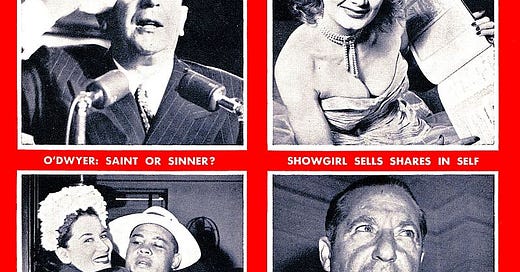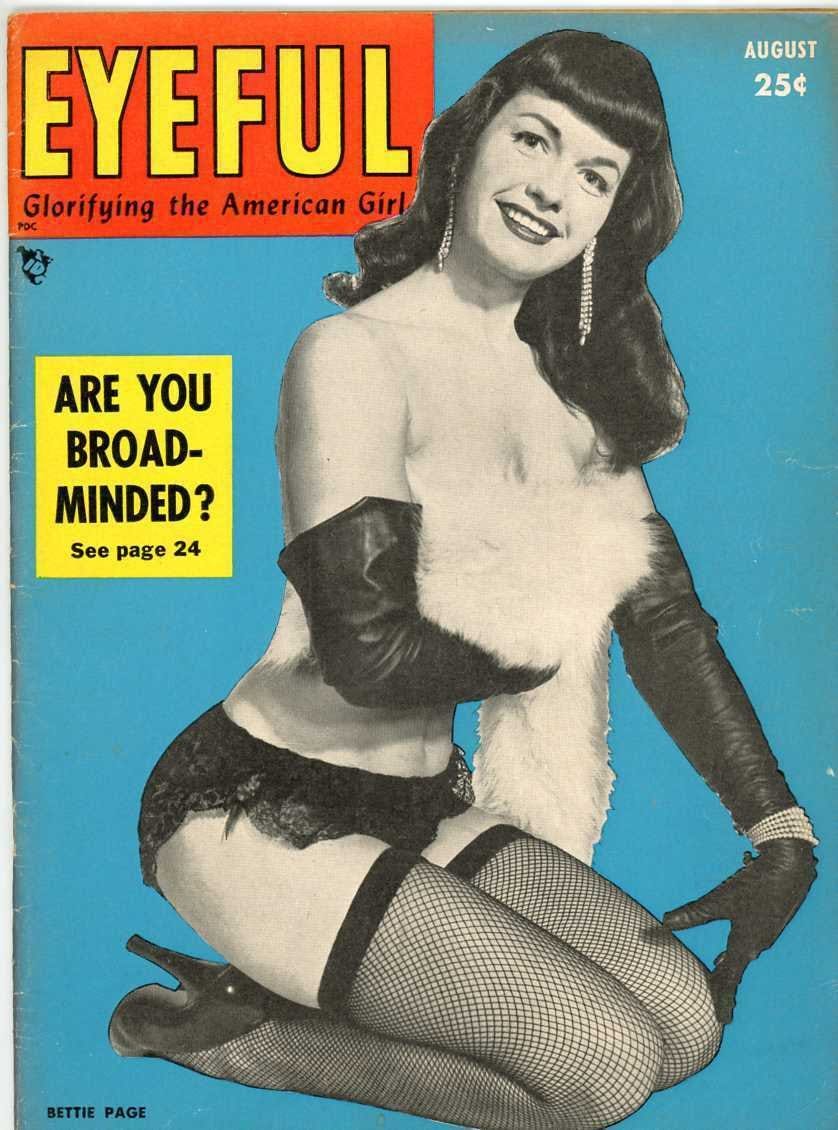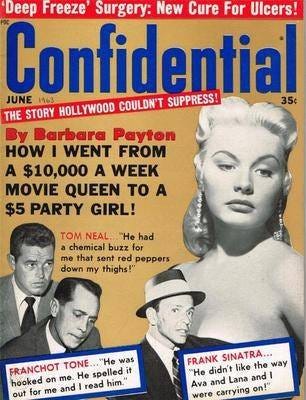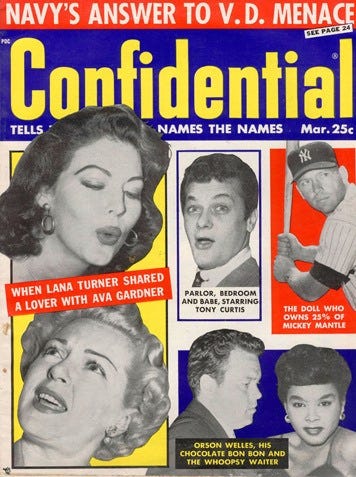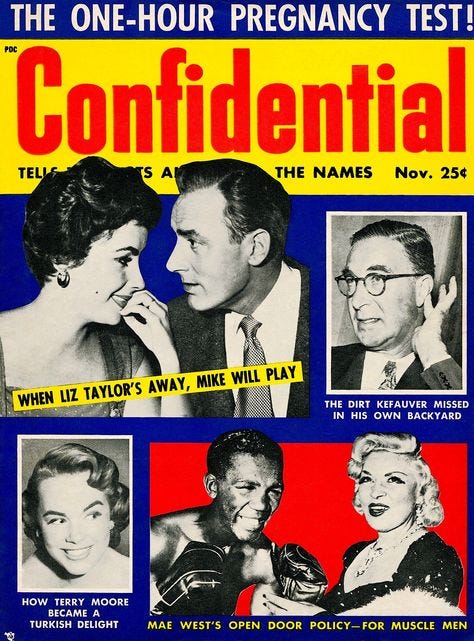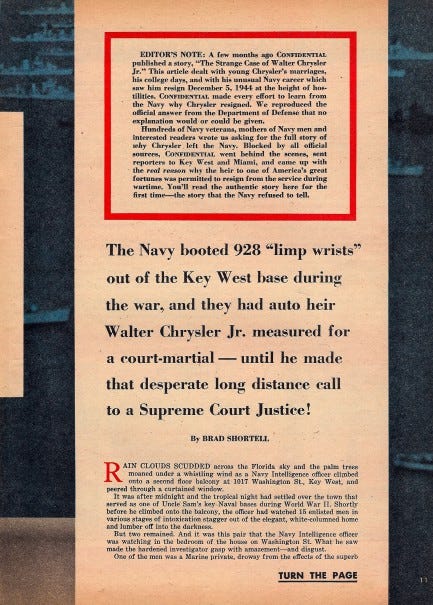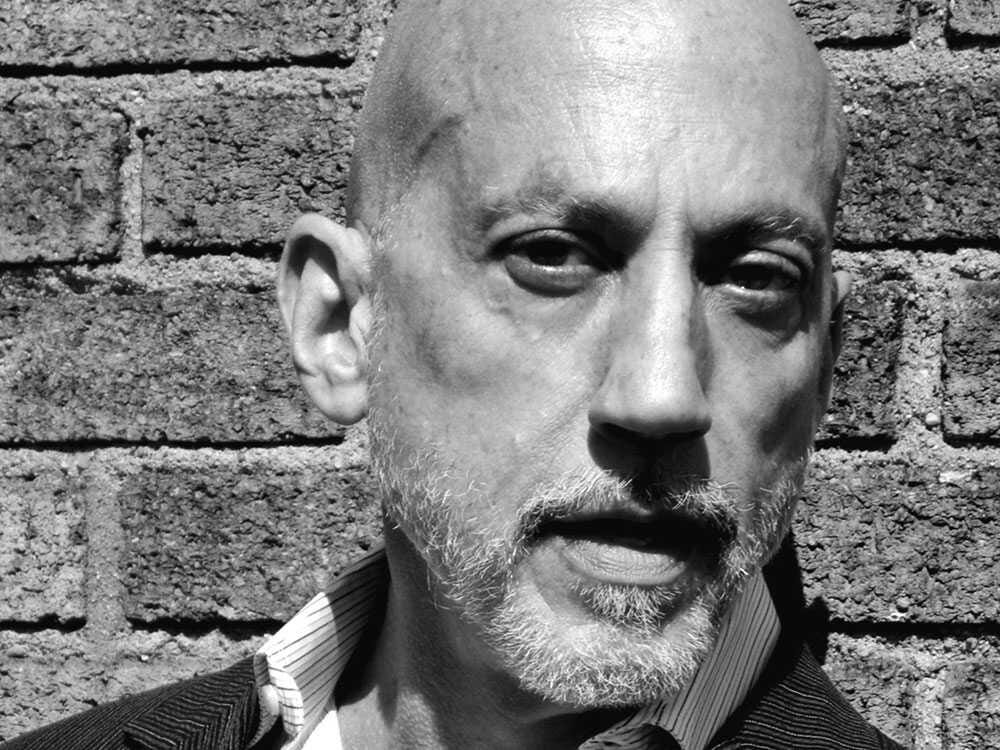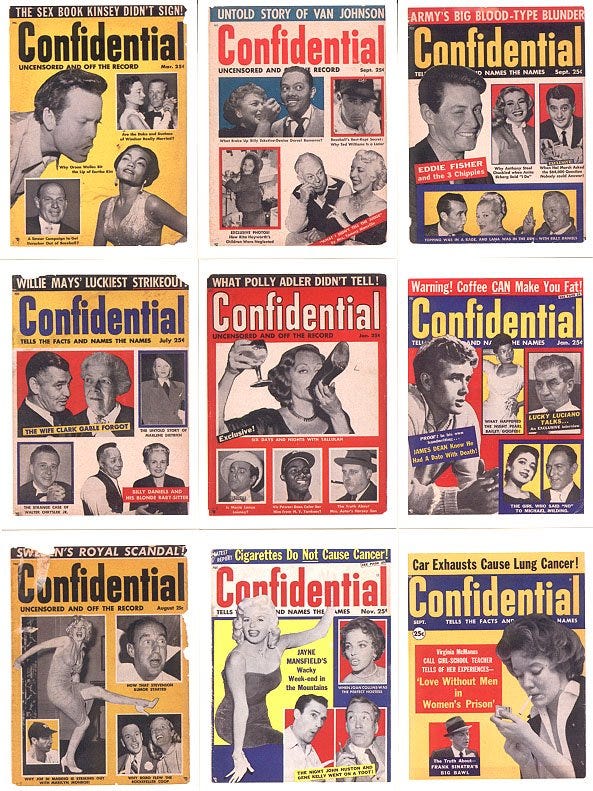CONFIDENTIAL MAGAZINE: THEY SCARED HOLLYWOOD AND WASHINGTON!
What do the National Enquirer and Confidential Magazine have in common? Both were founded by CIA officers!
The first issue of CONFIDENTIAL reveals a lot between the lines. William O’Dwyer was the Mayor Of New York City who had been chosen by the corrupt Tammany Hall machine and openly partied with organized crime figures. Then you have HOODLUM’S PARADISE - which is about the mob running Las Vegas. This was when the FBI claimed in public the mob didn’t exist and no newspaper or news magazine would dare do a story about Vegas and the mob.
Robert Harrison discovered Bettie Page and put her in his girlie magazines. A former OSS and CIA man, he used the tactics those groups used to find the dirt on celebrities. But when he went after Washington- he had to be stopped!
Via Wikipedia: The first Confidential issue was dated December (released November) 1952 under the caption "The Lid Is Off!" Its circulation was 250,000 copies. But when the breakup of Marilyn Monroe's marriage to Joe DiMaggio was reported in the August 1953 issue ("Why Joe DiMaggio Is Striking Out with Marilyn Monroe!"), the circulation jumped to 800,000. The quarterly magazine then became bimonthly and was the fastest growing magazine in the United States at the time. Harrison would claim its circulation reached four million, and because every copy was estimated to be read by ten persons, it might have reached a fifth of the US population.
Harrison would rent 4,000 square feet of office space at 1697 Broadway in New York City, but never had more than 15 staff members, mostly family relations of whom the most important were his sisters Edith Tobias and Helen Studin. He would also move into an even more luxurious apartment at the Hotel Madison cooperative on East 58th Street. From his two new headquarters, Harrison developed a Hollywood network of informants—prostitutes, hotel employees, down-on-their-luck actors and vengeful celebrities—working with local detective agencies such as the Fred Otash Detective Bureau and H. L. Von Wittenburg's Hollywood Detective Agency. Among the informants were minor actresses such as Francesca De Scaffa (ex-wife of Bruce Cabot) and Ronnie Quillan (ex-wife of screenwriter Joseph Quillan). According to Harrison, Barbara Payton would stop by Confidential's Hollywood office and sell a story whenever she was short of cash. However, the informants could rise to the level of prominent Hollywood columnists such as Florabel Muir and in some cases, all the way up to a producer such as Mike Todd or even a studio head such as Harry Cohn. Money, publicity, revenge or blackmail was the lure.
Barbara Payton sold this story to Confidential: I became good friends with Ava Gardner and Lana Turner.We three were in Palm Springs together. We were drinking and laying around with not many clothes and talking about things.Ava was married to Frank Sinatra in those days. He was screaming crazy about her. Well, he didn’t approve of the way we were carrying on like that and one night he came in and caught us all together. Well, I jumped out of the window and into the bushes but he caught Lana and Ava together and he was mad as hell. It got into the gossip columns and contributed to the end of their marriage. I was always in scrapes like that. You see, I was always where the action was. - By Barbara Payton
Confidential outed Ava Gardner and Lana Turner for being bisexual. Ava Gardner and Lana Turner were two bisexual stars whose exploits often ended up in Confidential. Sinatra was engaged to Lana but married Ava, knowing full well what they were up to with each other and those they seduced.
So why was he drawn to wild women whom he wanted to change?
Women who didn't want to change?
To hippies they were all straight and boring, but in their private lives, they made the sexual revolution look like a tea party!
Confidential even did an article on Robert Oppenheimer’s affairs!
And went after Estes Kefauver who headed hearings on juvenile delinquency and was gathering momentum to run for President!
Confidential was not swayed by the rich and powerful. Here they expose a Chrysler heir for being gay and calling in a favor from a Supreme Court judge!
The Democratic Party tried to find a way to stop CONFIDENTIAL as more and more politicians became targets. When the magazine did an article on abortions and the women that died from them or suffered from botched procedures they had him. No press was allowed to write stories about this then. He was charged with obscenity and ordered never to write or publish again! Because he had printed the word, “abortion”! Few today realize when abortion was made legal, the biggest protesters against it were Democrats! The court was conservative! Democrats had made it illegal to publish the word! Because Harrison supported abortion rights, he was banned from ever publishing again.
"They were sleazy and accurate," says Scott, who details the ups and downs of Confidential in his new book, Shocking True Story. "They also printed a little less than they knew — they might not choose to mention that the woman [in an affair] was 14. If the man said, 'We'll sue,' they said, 'We'll mention she was a minor.' "
Confidential specialized in spreading gossip about huge Hollywood stars — and making sure the facts were right. When Desi Arnaz and Lucille Ball were on the cover of Life magazine, for example, Confidential ran a cover story saying Arnaz had an affair with a prostitute. (Which was true, but it had happened years earlier.)
Journalist Henry Scott says that in a time when celebrities' public and private lives were more clearly differentiated, Confidential changed the way Americans viewed their movie stars.
The magazine also used innuendo to talk about celebrities indirectly.
"When they wrote about Lizabeth Scott," says Henry Scott (no relation), "they didn't say she was a lesbian. They said she preferred the company of babes."
Confidential alluded to the sexuality of a number of celebrities, among them Tab Hunter — and hired a former Los Angeles cop named Fred Otash to wire Rock Hudson's home.
"Otash had access to conversations where [Hudson] confesses to having sex with a man and talked at length about his life," says Scott. "The studios prevailed on Confidential not to write it, and said they'd give them a story of Rory Calhoun instead. Calhoun was a small-time criminal, and [Confidential] wrote a story about his secret criminal life. But instead of hurting him, [the story] made [Calhoun] into a tough guy." -NPR
Behind the paywall- a fantastic documentary on the magazine and various court attempts to stop it.
Keep reading with a 7-day free trial
Subscribe to Hidden Cold War History to keep reading this post and get 7 days of free access to the full post archives.
